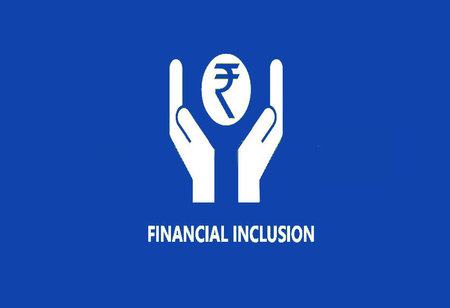Why Financial Inclusion is Important in India?
By Tanuja A Akkannavar

Financial Inclusion is a method of involving every individual in society to participate in financial management. The primary objective of this provision is to offer financial services to everybody according to their savings and income. Even till today, some of the underprivileged people from both rural and urban parts of the society are unaware of the financial services provided by the banks and, some parts of the population who are aware do not have any access to bank accounts. Also, with banks having certain set of rules and regulations which require an individual to maintain a minimum account balance, maintain minimum income, or submit property/asset papers before applying for a loan it is difficult for account holders, especially the economically underprivileged people to meet these criteria, as a result a lot of people unable/unwilling to have a bank account or involve in such procedure.
The Government of India along with the Reserve Bank of India is coming up with various promotional activities to spread awareness about financial inclusion since 2005. The government has given banking facility in most of the villages and remote areas by setting up a bank and has also introduced a number of schemes to provide financial safety for the people with poor income and below the poverty line. Some of the schemes are Atal Pension Yojana, Jeevan Suraksha Bandhan Yojana, Pradhan Mantri Jan Dhan Yojana, Varishtha Pension Bima Yojana and many more. Even after providing many such schemes a majority of people in India still remains unbanked.
With the boosting economy of the country and in order to achieve global trends for the development of India, financial inclusion is one of the important factors which aims at removing all the hurdles in making everyone financially independent. Financial inclusion is still in progress even after so many years and, especially in a country like India where most of its population relies on the agricultural sector, there is an urgent for financial inclusion.
Listed below are some of the reasons how financial inclusion can lead the change -
Making an Individual Financially Independent –
Financial Inclusion helps people stay aware about safe transactions such as deposits, credits, insurances or loan updates. It instils the habit of saving and this increases the capital and economy of the country because of the cash that gets deposited in the banks. Financial inclusion makes an individual become financially independent irrespective of anything, for example, in India even today, part of the female population does not have access to bank accounts because of the narrow thinking of families and are still financially dependent on men of the family. Financial Inclusion can also promote women empowerment in the country.
Spreading Awareness about the Banking Facilities –
The population should be made aware of the services provided through the financial inclusion, for example, the credit facilities, some part of the population still dependents on the family, friends and money lenders when he/she is highly in need of money. The banks and financial organizations offer credit/loan services depending on the income of the person at reasonable interest rates. Financial inclusion can help people get rid of extra interest that they had to pay to the money lenders. The old age people are unaware of the financial inclusion, they should be educated about the old age schemes such as old-age pensions and widow pensions which people from the rural villages and even the illiterate part of the urban society are still unaware of.
Benefits the Banks as Well –
Financial inclusion also benefits the banks in many ways, gradually when the numbers of accounts in the bank increases, the revenue of the bank's raises. This will help the banks to avoid taking loans from the corporate financial firms and have healthy transactions in the bank.
Financial inclusion benefits every individual and banks, giving a healthy boost to the economy. This can prepare individuals to face unplanned expenses in times of emergency. Everybody in the society can get access to all financial services provided by the banks and the Government of India irrespective of any gender or class.




